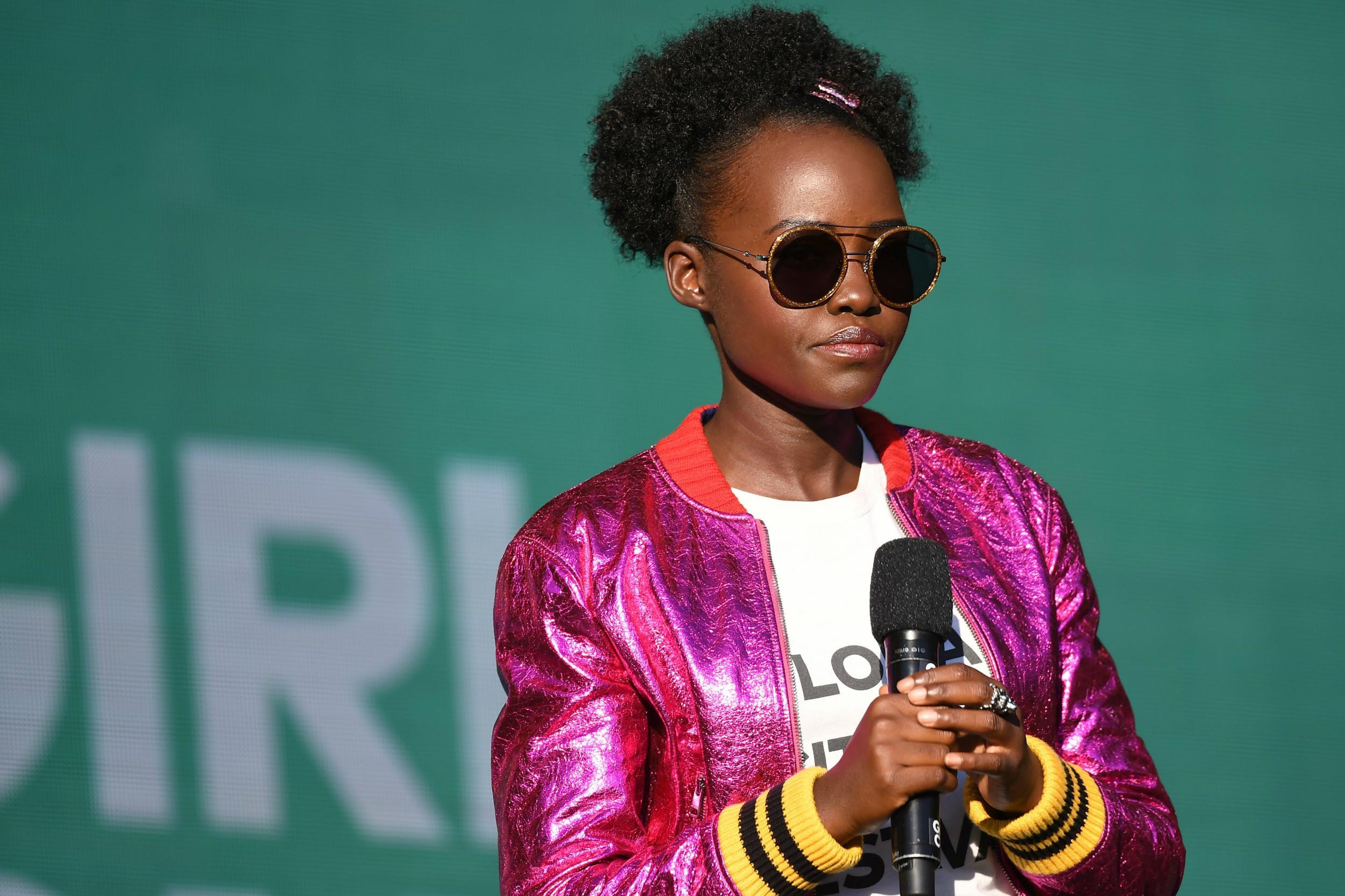Grazia airbrushing out Lupita Nyong'o's hair erases a significant part of black culture
Incidents highlight the obvious lack of diversity – in front of the camera and behind it

The Oscar-winning actress Lupita Nyong’o has criticised Grazia UK for erasing her hair on the cover of their latest issue. Many think racism is no longer an issue in the UK but the final edit of the cover, which removes such a key part of Nyong’o’s identity, proves otherwise.
In a powerful message on Instagram, the 12 Years a Slave actress posted an image of the magazine cover next to the untouched images to show how her hair was edited. Nyong’o said in the caption she was “disappointed” that they chose to smooth it out to “fit their notion of what beautiful hair looks like”.
It hasn’t even been a month since singer Solange Knowles called out the Evening Standard magazine, after they digitally removed her braids for their cover. It was particularly astonishing that the edit was given the green light, given that in the same interview Solange describes braiding as an “act of beauty, tradition and a form of art”.

Both women made reference to “Don’t Touch My Hair”, a song from Solange’s latest album, A Seat at the Table, in their criticism. Solange said the song describes “what it feels like to have your whole identity challenged on a daily basis”. It also describes having your hair physically touched by uninvited hands.
As it happens, just before I saw Nyong’o’s tweet, I saw someone tugging at my friend’s hair. It happens often and I assume ends the same way for most of us – that is, a rant in the group Whatsapp.
Instead of accepting full responsibility, Grazia released a statement yesterday that seemingly shifted the blame. It claimed: “at no point did Grazia make any editorial request to the photographer for Lupita Nyong’o’s hair to be altered on this week’s cover, nor did we alter it ourselves.”
So, who made the call? The lack of accountability and weak attempt at an apology did nothing but add insult to injury. In editing out features synonymous with blackness, Grazia is perpetuating white, Western ideals of beauty which cannot be met by women of colour.
Incidents such as these highlight the obvious lack of diversity of the teams behind the scenes as well as in front of the camera, and addressing this is the first step in preventing another similar gaffe.
Although it’s a lot more common now than when I was growing up, seeing a black woman on the cover of a mainstream magazine still excites me.
This month, many of my friends will buy their first copy of Vogue, a nod to its new black editor Edward Enninful who chose to feature British-Ghanaian model Adwoa Aboah for his first cover. It’s worth noting that up until 2015 no solo black model was featured on the cover of Vogue since Naomi Campbell in 2002. That represents 146 missed opportunities.
The media influences our perception of beauty. This is especially true during our more impressionable years. Lupita knows this all too well, and part of her concern regarding the edited image derives from her own experiences. Under the same Instagram post she said: “I embrace my natural heritage and despite having grown up thinking light skin and straight, silky hair were the standards of beauty, I now know that my dark skin and kinky, coily hair are beautiful too.”
When you invite a black woman to grace the cover of your magazine, expect her to show up in her entirety. Our inadequate representation means we would be doing our communities a disservice if we tried to hide, or conform, or to mask ourselves in any way. Including our hairstyles.
Hair has always been integral to black identity. In early African civilisation hairstyles could tell others where you were from and even what your marital status was. During the civil rights movement wearing your hair in an Afro was a political statement. While black culture has evolved and differs around the world, hair is still a form of expression.
Imagine being told that the hair that grows out of your head is not acceptable. For many black people, especially on the kinkier end of the scale, this is our reality and I rarely see my 4C-type curls on magazine covers. When our hairstyles are celebrated, more often than not, it’s because our white counterparts have made it “fashionable”.
I applaud both Nyong’o and Knowles for using their platforms to speak out. If you say they are overreacting, you probably have the privilege of being well represented in popular culture – and everywhere else.
The reality is that we, women of colour, are still being turned away from jobs and schools because of the hair that grows out of our heads. It is time the media normalised images of black hair, in all its versatile glory.
Join our commenting forum
Join thought-provoking conversations, follow other Independent readers and see their replies
Comments
Bookmark popover
Removed from bookmarks